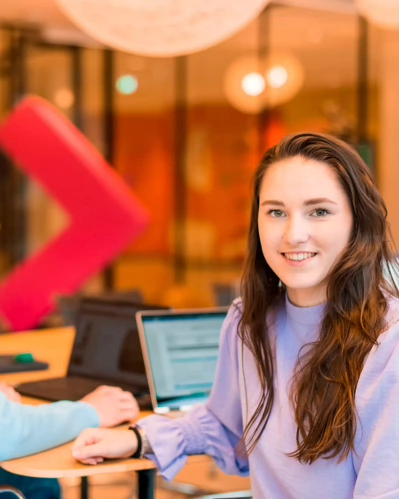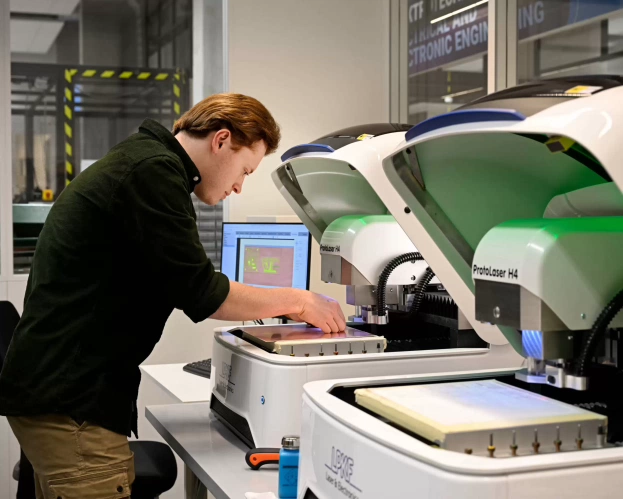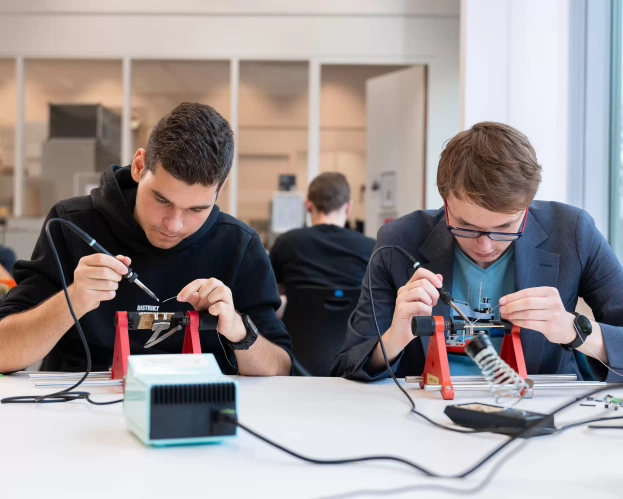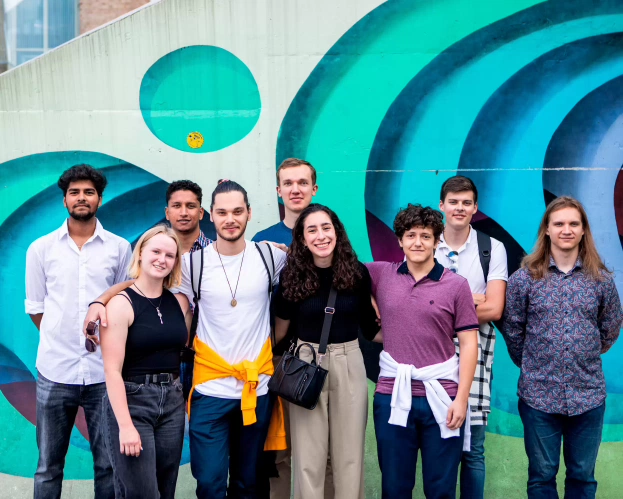
Programmes

Living in the Netherlands
- Information for parents/carers
- Our campuses
- Studying in the Netherlands
- Visa and insurance
- Holiday calendar

Check all deadlines
Open days and more
When you are a student of the Electrical and Electronic Engineering programme, you will be trained to become a designer in electrical engineering. It is your job as an electrical engineer to design sustainable solutions to help our planet. The possibilities are endless, whether you work in the field of sports, music, communication, healthcare, energy, or safety.
Do you already know what your phone looks like on the inside?
You design and develop the brain behind electrical appliances.
During your studies you can already make an impact, for example by improving healthcare or by making devices more sustainable

What’s involved in creating artificial intelligence software? What smart solutions will help solve the climate crisis? How can we get robots in warehouses to efficiently take over heavy lifting duties? We train you to become a successful electrical engineer by working on these types of projects.
You will work in a team and create a speaker, metal detector, or self-driving car in the first year.
And because you showed you understand the theory by working on projects you will have less exams.
Skills such as cooperation, communication, and planning will help your team to achieve success.
You will start with the basics of electronics, programming and mathematics in the first year. You’ll delve deeper into topics such as signal processing and power electronics during your second year. In the third year, you’re going to do an internship and chose a minor that fits your interests. Finally, you’ll specialise in a certain topic within electrical and electronic engineering in your fourth year, and you finish your programme with a graduation internship.

Will you be tinkering on electrical cars? Will you come up with the software that will be used in new smartphones? Or are you going to work on an energy-efficient system to combat the climate crisis? With a degree in Electrical and Electronic Engineering, you will be a member of the design team of the future.
Make sure to check all admission requirements.
Explore your future at Fontys where you’ll meet innovation, entrepreneurship, and creativity.
Use our tuition fees indicator and understand the monthly living expenses for international students in the Netherlands, ranging from EUR 900 to EUR 1,100.
Calculate tuition fees
Starting a study in a foreign country is exciting. Learn more about how Fontys can assist you, especially with accommodation, amid the Dutch housing crisis.
September, February
English
4 year(s)
Bachelor
Full-time
Eindhoven